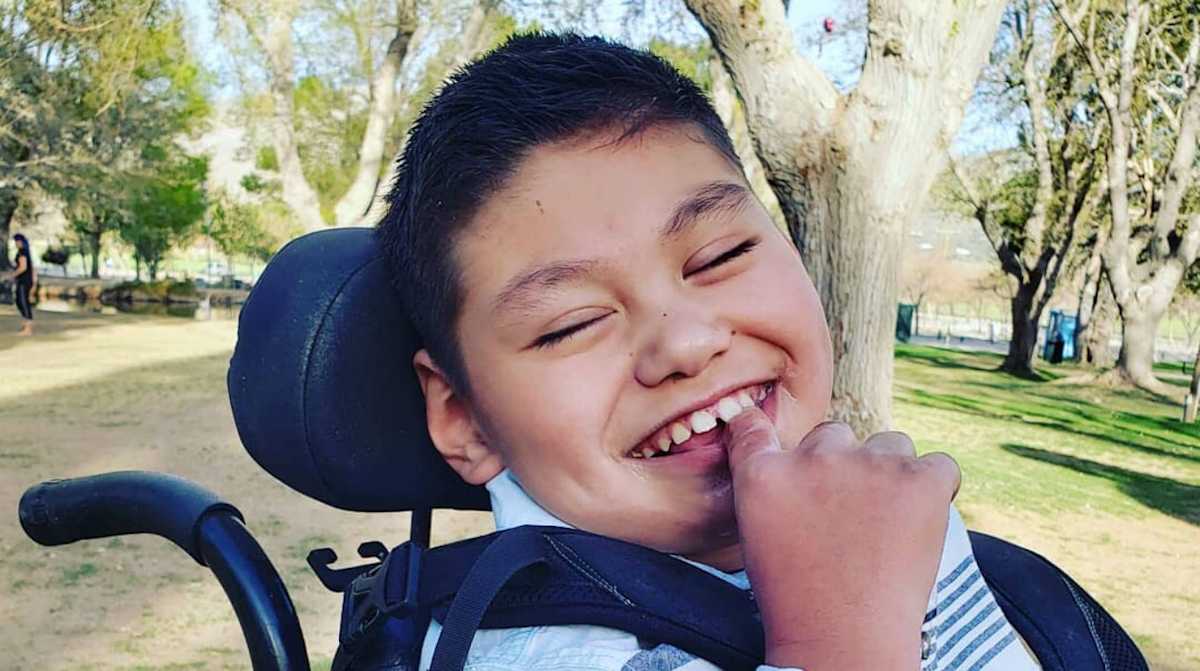Nothing prepares you for being the parent of a special needs kid. Not books. Not websites. Not even the experiences of other parents. And even if you already have one child with special needs, each new child is different and unique.
Margaret Graham is an attorney in Albuquerque, New Mexico, who specializes in working with families with special needs — and who has a child of her own with special needs. "There's nobody standing at the doorway of the hospital when you leave, saying, 'OK, your kid has Down syndrome, or your child has cerebral palsy, here are all the things you need to do now, here are the agencies, here are the benefits,'” she says. “No, it’s just you. You have to figure it out.”
The different types of special needs

Twenty20
One way to assess the number of kids with special needs is to look at public schools, which are required by law to provide free and appropriate public education to all kids with special needs. Roughly 14% of all public school students ages 3 to 21 receive special education services — but that doesn’t account for all of the kids with special needs in the United States. (Many are ages 0 to 3; some are educated privately.)
Among that population is a wide range of disabilities.
Generally speaking, you can break down the various types of special needs into four categories:
- Physical — Such as muscular dystrophy, multiple sclerosis, chronic asthma, and epilepsy
- Developmental — Such as Down syndrome, autism, dyslexia, and processing disorders
- Behavioral/Emotional — Such as ADHD, bipolar disorder, or oppositional defiance disorder
- Sensory Impaired — Such as being blind, visually impaired, deaf, or hearing-impaired
Clearly, there are differences between a child with muscular dystrophy and one with ADHD, but both of those children are covered by the same federal laws.
Are all special needs the same?
In a word: no. Even children with the same diagnosis have different experiences and different challenges.
"Some folks have all kinds of things going on. If I have a family member with cerebral palsy, the manifestation of that can be very different from person to person,” she says.
Autism, too, manifests quite differently. And kids with special needs often have co-morbidities, like Graham’s daughter, now 18, who has cerebral palsy and autism.
“Trying to fit people with very different abilities and capabilities into the same little slot — it doesn’t always work very well,” says Graham.
All the same under the law
While each child must be considered individually, there is still just one big category under the law. To be clear, some kids with special needs, who do not qualify under the Individuals with Disabilities Education Act (IDEA), will qualify under Section 504 of the Rehabilitation Act, a civil rights law.
“A far as qualifying for and receiving benefits, the analysis is the same,” explains Graham. “It comes down to the person, child, or young adult and what they can do for themselves and what level of care they need. It’s fact-specific and person-specific.”
What every parent must do
Kids with special needs are protected under federal and state law — that’s a given. But navigating the nuances of your particular state’s Medicaid program, or the local school district, is not so easy. The process doesn’t always make sense. Timelines, benefits, and entitlements can be opaque.
The onus, then, is on the parent.
“Parents need to understand not only what their child is getting [in terms of services'], but what they’re entitled to by law,” says Graham.
It’s of utter importance, then, for parents to research the law and know their rights — which is the hard part, and where lawyers like Graham come into play, as well as various local and state agencies.
“If you have questions, make sure you demand answers. Don’t take no for an answer, if your child is entitled to a benefit,” says Graham, who knows from experience. “Parents need to be aggressive in searching for benefits and resources for their kids.”
Navigating the bureaucracy of special needs education and federal benefits can feel daunting. But other parents, lawyers, and nonprofits can help ease you down the path — even when they haven’t walked in your shoes.
Says Graham, “You can’t give up.”
Source: https://mom.com/kids/different-types-of-special-needs













